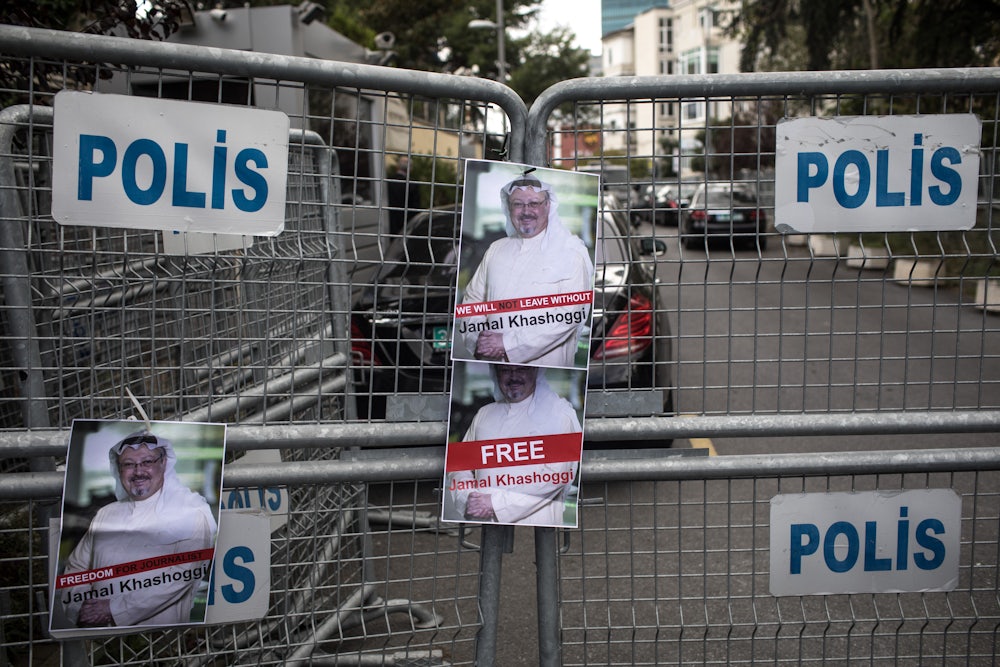CNN is reporting that the Saudi government might be on the verge of a substantial admission in the case of missing journalist Jamal Khashoggi, who disappeared on October 2. Previously the Saudi government asserted that Khashoggi had left the Saudi consulate in Istanbul on that date. Now, the news network reports:
According to two sources, the Saudis are preparing a report that will acknowledge that Saudi journalist Jamal Khashoggi’s death was the result of an interrogation that went wrong, one that was intended to lead to his abduction from Turkey.
One source says the report will likely conclude that the operation was carried out without clearance and transparency and that those involved will be held responsible.
If accurately reported by CNN, the new Saudi government line makes no sense. After all, if they had kidnapped Khashoggi and brought him back to Saudi Arabia, what would they have done with him there? Would they really have been willing to eventually release a critic of the regime who would be able to present a horrific tale of abduction? And, in any case, kidnapping a critic of the regime seems only slightly better than outright assassination.
Last Friday, former Australian diplomat Anthony Bubalo in The New Republic explored the possibility that this was an abduction that went awry and noted that it still sent a message of intimidation to the Saudi diaspora:
Arresting a critic or forcibly returning them home sends a clear message to others, including any rivals in the royal family, that no dissent will be tolerated. Even exile will not keep you safe. This may have been the plan with Khashoggi, with something in the abduction going terribly wrong. But if the intent from the outset really was to kill Khashoggi then it would seem to go beyond just an effort to intimidate critics. It would seem to reflect such a thin-skinned vindictiveness and caprice as to send an entirely different—and from the crown prince’s perspective, not entirely helpful—message to the people around him: that no-one is safe while the crown prince’s power remains so untrammeled.
